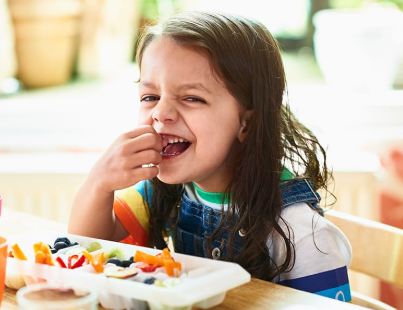Encouraging children to develop healthy habits can sometimes feel challenging, especially when trying to make wellness engaging and fun rather than a chore. One of the most effective ways to motivate children is by using fun wellness rewards. These rewards can help children adopt and maintain positive behaviors in a way that feels exciting and meaningful.
Wellness rewards work best when they focus on experiences and activities rather than material items. For example, celebrating a milestone with extra playtime, a special outing, or a creative project can encourage children to embrace habits like physical activity, healthy eating, and mindful relaxation. Rewards that align with a child’s interests can transform healthy behavior into something they look forward to.
To begin, observe what your child enjoys the most. Every child has unique motivations. Some might be inspired by movement and physical challenges, while others might prefer creative expression or social experiences. Tailoring wellness rewards to a child’s individual interests ensures that the reward itself becomes part of the motivation for maintaining healthy habits.
For physical activity, consider playful challenges such as a family dance-off, a scavenger hunt in the park, or a weekend bike ride. When a child achieves a set goal, the reward could be choosing a preferred physical activity or an adventurous outing. This reinforces the idea that moving their body is enjoyable and rewarding.
Healthy eating can also be encouraged through thoughtful rewards. Instead of sweets or treats, reward children with opportunities to help prepare a favorite healthy meal, explore new fruits and vegetables, or decorate plates creatively. This approach encourages nutritious choices and teaches skills while fostering pride and accomplishment.
Mental and emotional wellness can benefit from rewards as well. Practices like guided relaxation, mindfulness exercises, or quiet reading time can be framed as special moments earned through effort. For instance, after completing a short meditation or practicing deep breathing, children might choose a calming activity like listening to music or engaging in an art project. Linking wellness practices to enjoyable experiences helps children value their own well-being.
Consistency is important when using rewards to promote wellness. Establishing a predictable pattern allows children to understand the connection between their actions and positive experiences. Tools like visual charts or journals can help children track their progress and celebrate achievements.
Alongside external rewards, focus on intrinsic rewards by helping children recognize the natural benefits of wellness. Discuss how nutritious foods make them feel energetic, how movement improves mood, and how mindfulness promotes calmness. This reinforces that healthy habits are valuable in themselves.
Parents and caregivers are critical role models. Children often mimic adult behaviors, so participating in physical activity, preparing nutritious meals, and practicing mindfulness sets a visible example. Sharing wellness experiences as a family strengthens bonds and encourages healthy habits in a supportive environment.
Flexibility is key. As children grow, their interests and motivations change. Being attentive to these changes and adapting rewards ensures that wellness practices remain engaging. This prevents routines from feeling monotonous and keeps children motivated.
Opportunities to engage with the community, such as local events, group sports, or volunteer activities, can extend wellness beyond the home. These experiences reinforce healthy habits, foster social skills, and build a sense of belonging.
Balance structure and spontaneity. While planning provides consistency, allowing room for unexpected celebrations keeps wellness fun. A surprise picnic or an impromptu dance party can make healthy living feel adventurous.
Positive reinforcement should always be encouraging and supportive. Focus on effort, progress, and the enjoyable aspects of healthy behavior. Praise and encouragement can complement tangible rewards, helping children feel recognized and motivated.
Over time, children can internalize wellness as a natural and enjoyable part of life. By consistently linking healthy choices with positive experiences, children are more likely to develop lifelong habits that support physical, mental, and emotional well-being. Thoughtful rewards, engaging activities, and supportive guidance create an environment where wellness is joyful rather than a task.
Encouraging children with fun wellness rewards is about creating a positive and interactive approach to healthy living. By observing interests, celebrating achievements, and modeling behaviors, parents can help children associate wellness with enjoyment and personal growth. With patience, creativity, and consistent support, children can develop habits that nurture their bodies, minds, and spirits, setting the foundation for a lifetime of well-being.






